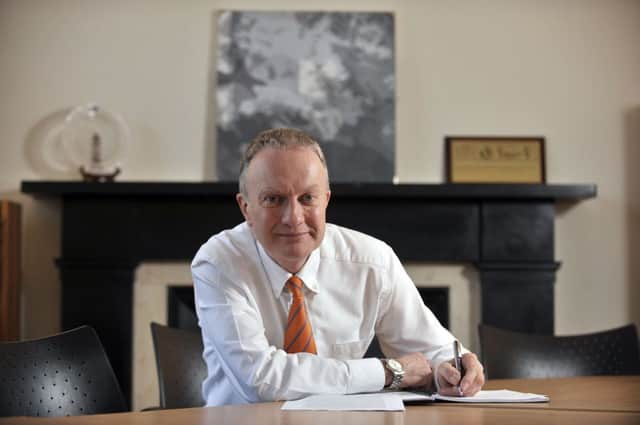Comment: Game theory can help in mediation


SOME years ago I worked as a mediator in Malawi with a large group of people who represented several sides in a dispute. We had three days of workshops and negotiations. On the first day, we played The Gain Game, a well-known exercise in game theory. The learning is simple; those who co-operate sensibly tend to achieve more successful outcomes, individually and collectively, than those who are aggressive and adopt a winner-takes-all approach.
The game is played using red and blue cards. Red cards encourage selfish playing, while blue cards are used by those who understand the benefits of collaboration. They are played in a variety of combinations depending on the actions and reactions of the players. It is often only in retrospect that the players understand the key to success is to remove the red cards from the game as early as possible – and that such a move requires communication, trust and co-operation. But setting aside the baggage of the past can be difficult for some, especially when the game is set up with incentives to encourage defection from cooperation.
Advertisement
Hide AdAdvertisement
Hide AdIn Malawi, on the third day, the participants decided to place their red cards where they could be seen by all and used by none. This was a symbol of giving up the opportunity to requite the other, of a willingness to work together, whatever the outcome. It was a moment full of meaning and acceptance. There was acknowledgement of the pain of the conflict and of the sacrifice entailed in giving up the potential to gain revenge. There was acceptance of different points of view and recognition of the need to work hard and respect the other, especially if that other had lost something irrecoverable. The act was also one of reassurance, of putting out of play that which could cause further harm and lead to mutual destruction.
It was an act of reconciliation and hope, looking to the future. It was full of self-interest, of course, and that is the point. Self-interest and the interest of the other need not be mutually exclusive. Indeed, to “win”, we need to help the other to “win” too. In Scotland and in the rest of the UK, after the referendum, that will need to be our guiding light. The same applies in any difficult situation if we genuinely seek to move on from a painful dispute or conflict.
How many clients are helped by their legal advisers to rediscover all that binds them together and is common, rather than that which separates or has separated them? How can we get into each other’s shoes, understand motivations, hopes, fears and aspirations, move together in one direction, with a common destination, whatever has gone before? Some will say this is hopelessly naïve. Well, what is the alternative? Consider where clients will go if they don’t reach agreement on what needs to happen next. Such consideration gives them a benchmark against which to judge the appropriate course of action – to help them look over the precipice, but not to push. They might all go down. With what benefit – or cost?
Harvard’s William Ury spoke recently about the golden bridges to be built to reach out to others who think and feel differently, leaps of faith to be made and trust to be regained. There are victory speeches to be written, not for clients but for others, for adversaries – so when those adversaries go back to the office, the boardroom, the union meeting or the family, their words work for them and the clients.
There will be concessions to be made, faces to be saved, hard positions to be softened. That takes wise counsel. The client will need help to improvise and be flexible. The legal adviser and client will do well to assume the “opponent” is trying his or her best in the circumstances in which they find themselves. That is never easy. It is harder than assuming they are out to get you and acting accordingly.
Robert Axelrod wrote: “We are used to thinking about competitions in which there is only one winner … but the world is rarely like that. The key to doing well lies not in overcoming others, but in eliciting their co-operation.”
Or, as the great writer Ken Cloke once said, in reality “there is no ‘us and them’, only ‘us’.”
• John Sturrock is chief executive, Core Solutions. Ken Cloke will hold a masterclass The Dance of Opposites in Edinburgh, on 20 November, www.core-solutions.com